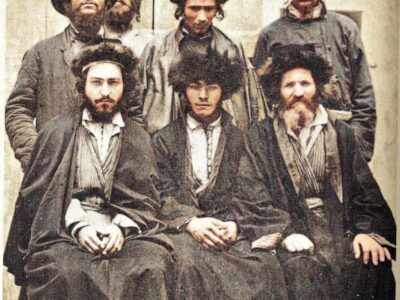Ottawa’s Brittania Yacht Club recently named the entry to its harbour Sherwood Port and erected a plaque there in honour of Livius Sherwood, the provincial court judge and internationally-known champion of sailing, who died June 7 in his native Ottawa at the age of 78.
In the courtroom Mr. Sherwood was known for his patience, fairness and special compassion for young people, qualities that also marked his career on the water. A devotee of sailing for more than half a century, he won numerous competitive prizes, often with junior sailors on his crew, before turning his legal talents towards improving the sport.
Hon. Justice Livius Anglin Sherwood; provincial and federal court judge, ace sailor and international sailing judge. Born Ottawa, Nov. 27, 1923; died Ottawa, June 7, 2002.
As the director of sailing judges for the 1976 Olympics, the nautical portion of which took place at Kingston, he set an inspiring standard of excellence, according to Bill Cheek of Dundas, Ont., who worked with him there and became an international sailing judge in his mentor’s footsteps.
“His credo was that he expected ‘uncompromising perfection’ from the volunteers — those were his actual words. When he held his first major meeting with us, he made it very clear that if we didn’t measure up to the high standards he expected, we would be asked to stand aside. And that did happen from time to time. It resulted in a legacy of highly-skilled race officials that elevated the standards of race management forever.”
During the 1976 Olympics he met Queen Elizabeth and Prince Phillip and was invited onto the royal yacht. He helped to judge or umpire two more Olympic regattas and many other international competitions, including seven America’s Cups and 26 world championships of the International Sailing Federation (ISAF), the sport’s world governing body.
“A lot of people said that they felt that if he was on the jury, they would get a fair shift,” said his friend, Graeme Hayward, an international sailing judge.
A former director of ISAF and the Canadian Yachting Association, he remained active on the rules committees of both organizations, and was centrally involved in overhauling the rules of sailing in 1996. Afterwards he traveled the country to brief sailors on the new legalities, which constituted the most dramatic change to the international rulebook in nearly half a century.
A past commodore of the Brittania Yacht Club and the founder of its junior sailing program, he was regarded by many as a pillar of the sport, both locally and worldwide. “He really believed in what we call Corinthianism, which is sailing fairly by the rules,” said Ron Brooman, a retired Ottawa accountant who raced with Mr. Sherwood for many years beginning in 1947.
An impressive flotilla of honours came to him in the last two years. In 2000 he won ISAF’s prestigious Beppe Croce Trophy, whose previous recipients have included King Olav V of Norway and King Juan Carlos of Spain, and he was the Canadian Yachting Association’s Rolex Sailor of the Year. He was inducted into the Ottawa Sports Hall of Fame last October.
“He had an incredible ability to read the winds,” said his son, Chris Sherwood. “He seemed to know where to go to find the right winds, to keep ahead of the pack. It always amazed me. He’d see an area on the opposite shore and he’d say, ‘We’re going over there.’ And we’d head over there and everyone would stay behind, and sure enough, the breeze would pick up and we’d take off ahead of everyone.”
He was born in 1923 to a well-established family with a distinguished United Empire Loyalist background; his father and paternal grandfather had been military colonels, his distaff grandfather a federal chief justice. He attended private schools in Ottawa and Montreal and served overseas for four years in WWII. Attaining a BA at the University of Toronto, he attended Osgoode Hall Law School and opened a law practice in Ottawa in 1950. He became a magistrate in 1960 and a provincial judge in 1968.
Although he had sailed at the family cottage on Blue Sea Lake in Quebec, it was not until he returned from the war that his grandmother bought him his own sailboat, a 14-foot cat dinghy that he named Four Winds. It was the first of a succession of dinghies, dragons, sharks, sloops and Nonsuch’s that he would possess and master. He often joked that it would be a “frosty Friday” the day he got a powerboat; he acquired one late in life and called it Frosty Friday.
He was Canadian champion of shark-class racing in 1964 and North American shark champion in 1965. Soon after he gave up competing and began his rules and jury work. Professionally, he retired from the courtroom in 1983 but returned in 1988 to hear federal tax appeals. He impressed many with his mastery of Canada’s complex tax laws until retiring a second time in 1993.
He was a founding chair of the Ottawa Youth Services Bureau, a volunteer for the Ottawa Boys Club, and a member of the Governor-General’s Curling Club. He continued adjudicating even in the throes of illness; he drafted an important appeals decision only two weeks before he died of cancer. “When Livius got sick we said, ‘What do you want to do, do you want to retire?'” said Mr. Hayward. “He said, ‘No, my mind’s still here, I want to die in harness.’ And that’s basically what he did.”
He was predeceased by his wife, Anne Galligan, in 1979, and by a younger brother, George, in 1999. He leaves son Chris Sherwood and daughter Mary Sharkey, both of Ottawa.






